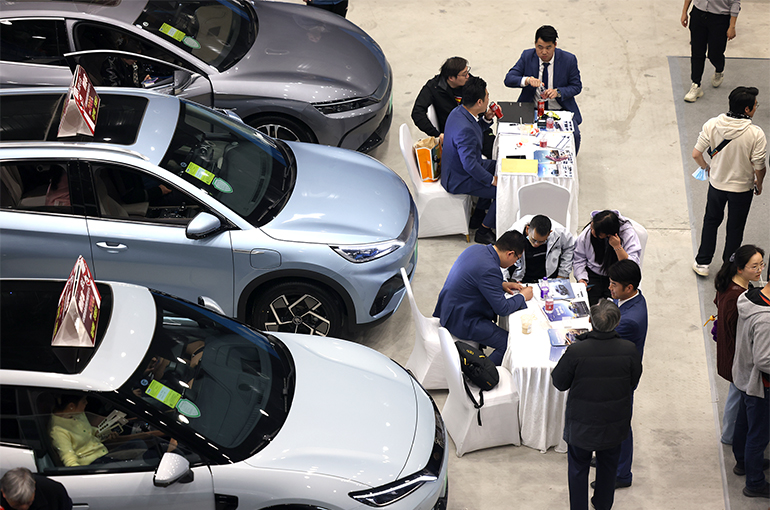 China to Likely Implement Major Consumption Tax Reform This Year
China to Likely Implement Major Consumption Tax Reform This Year(Yicai) Jan. 8 -- China is expected to launch significant reform to its consumption tax, the country’s third-largest tax category, to expand local tax revenue sources and enhance local governments’ financial autonomy.
The State Council proposed in 2019 to let local governments collect part of the consumption tax to alleviate their financial difficulties. This initiative has not yet been implemented, but this year is expected to be the one.
However, it is still unclear the taxes on which items will be collected by local governments and the potential impacts on local government finances and the items’ sales.
Gradually shifting the collection of the consumption tax from the production to the consumption stage would also help supplement local tax revenue sources and improve the local tax system, Lv Bingyang, executive director of the Institute of Public Finance and Taxation at Renmin University of China, told Yicai.
As for which taxable items would be shifted to the consumption stage for collection, it depends on the tax administration technology, Lv added.
China may pick one or two of the four main taxable items -- tobacco, alcohol, refined oil, and cars -- and make their taxes collected at the consumption stage, Fan Ziying, dean of the School of Public Economics and Administration at the Shanghai University of Finance and Economics, told Yicai.
The consumption tax reform is expected to have different impacts on different regions.
China’s consumption tax focuses on tobacco, alcohol, cars, and refined oil, explained Luo Zhiheng, chief economist at Yuekai Securities. Even though the collection of taxes on these items belongs to the central government, that of related taxes -- urban construction tax, education surcharge, and local education surcharge -- are fixed revenues for local governments.
If the collection stage of the consumption tax is shifted to a later point, the fiscal revenue of major tobacco-producing regions, such as Yunnan province, may increase only slightly or even decrease, leading to uneven results, Luo noted, adding that China should establish a transfer payment system during the reform transition period.
Consumption tax is China’s third-largest tax category after the value-added tax and corporate income tax, accounting for about 9 percent of the country’s total. Collected by the central government, it includes 15 taxable items, including tobacco, refined oil, cars, and alcohol, which account for over 90 percent of the total collected amount.
China’s consumption tax totaled CNY1.5 trillion (USD204.6 billion) in the first 11 months of last year, up 2.2 percent from a year earlier, according to data from the Ministry of Finance.
Editor: Futura Costaglione